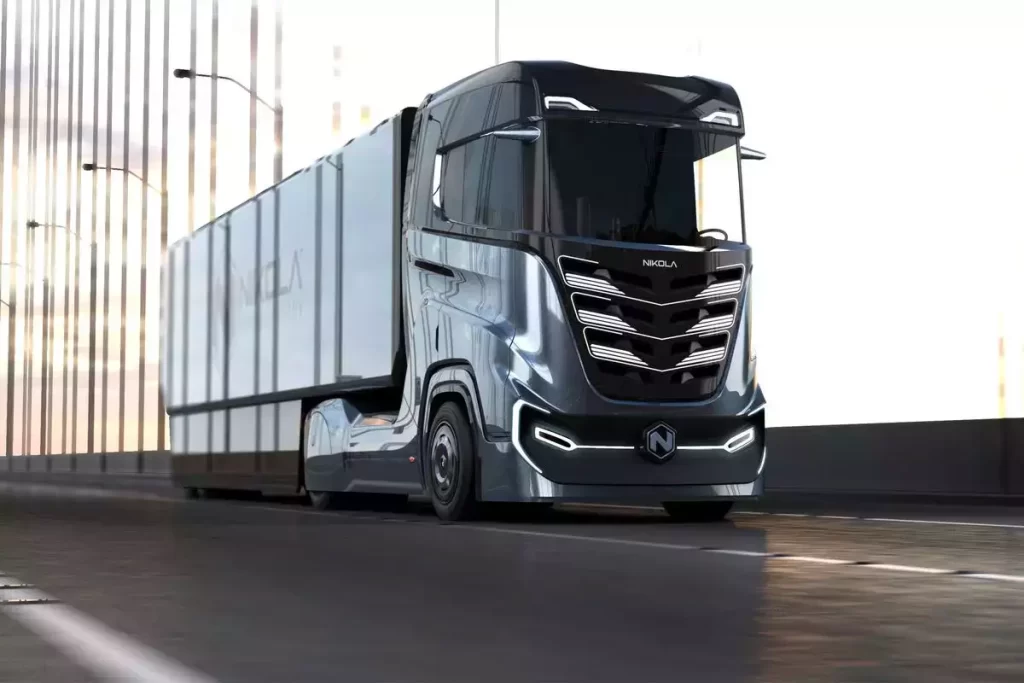Due to emissions restrictions for fossil-fueled vehicles, demand for electric trucks is steadily rising. By 2022, cumulative sales for medium and heavy-duty electric trucks had already exceeded 100 in most major markets.
European and North American electric truck makers rely heavily on Asian battery makers due to their dominance in lithium iron phosphate (LFP) battery chemistry; however, they aim to secure production capacity of their own.
1. Environmentally friendly
Electric trucks produce no emissions and contribute less to climate change compared to traditional diesel trucks, while their simple electric drive systems reduce maintenance costs and regenerative braking increases brake life and range resulting in lower overall total cost of ownership over the long term.
Substituting diesel trucks with electric ones will significantly decrease NOx and fine particle pollution, leading to improved air quality and human health. This is particularly significant in neighborhoods along truck routes where residents tend to be predominantly people of color with lower income.
Electric truck adoption will likely increase with increased availability of makes and models, investments in charging infrastructure investments, and rapidly improving upfront and long-term economics. Fleets must invest in charging strategies to minimize overall charging costs; utilities could partner with truck manufacturers and fleets to support their electrification goals while electric vehicle management platforms play a critical role in helping achieve sustainable profit goals.
2. Reduced maintenance costs
Electric trucks can significantly lower maintenance costs in comparison with traditional diesel trucks. This includes reduced moving parts, fluid consumption and electricity use as well as wear and tear from regenerative braking.
Fleets can benefit from reduced downtime and improved reliability when adopting electric trucks, and many states and municipalities have already implemented policies supporting their adoption through rebates or incentives.
As battery electric truck technology improves and manufacturers produce more models, their costs should decrease accordingly. Furthermore, deploying an extensive public charging network should enable these trucks to travel longer routes than their current capabilities allow.
3. Better fuel economy
Trucking is an integral component of our economy, yet a major source of pollution. Thanks to zero tailpipe emissions, electric trucks offer an effective solution to lower CO2 emissions.
EV technologies also improve fuel efficiency, as battery electric vehicles can operate at lower power levels to avoid peak demand charges, thus lowering capital and operational costs. Certain systems even eliminate diesel idling which consumes 1,400 gallons annually.
NACFE has produced primers to assist fleet managers and utilities with evaluating the effects of electrification on their operations. Fleet managers should work closely with their utilities early on to understand how rates structure may impact costs associated with powering large EVs over long distances. Regional haul routes offer ideal candidates for electrification; their routes tend to follow consistent paths back to one base location and return. As battery density continues to improve, more applications for electrified vehicles become economically feasible.
4. Safety
As electric vehicles continue to expand in their capabilities and size, it’s imperative that safety advances keep up. Cameras and radar monitor blind spots and driver alertness, keeping vehicles in their lanes while also adjusting speed accordingly – helping prevent crashes and reduce driver fatigue which are both key contributors to fatal accidents.
Medium-duty electric trucks use fewer moving parts and do not include high-temperature exhaust or emissions systems, making their maintenance simpler and more cost-effective. Battery electric vehicles may also benefit from longer design lives of their batteries reducing replacement costs over the lifecycle of the vehicle.
Fleets that invest in electric battery trucks, plug-in hybrid vehicles or fuel cells can realize substantial reductions in fuel consumption, cutting operating costs and overall costs of ownership. When combined with other clean technologies such as renewables or cleaner fuel options, these vehicles can help decrease oil dependence while simultaneously improving air quality while hastening transition towards a more sustainable economy. Now is the time to seize this opportunity!







More Stories
How to Choose the Right Diesel Emission Services for Your Fleet
Budget Truck Rental – Reasons to Rent From Budget
Truck Dealers Shifting Focus to Parts and Service